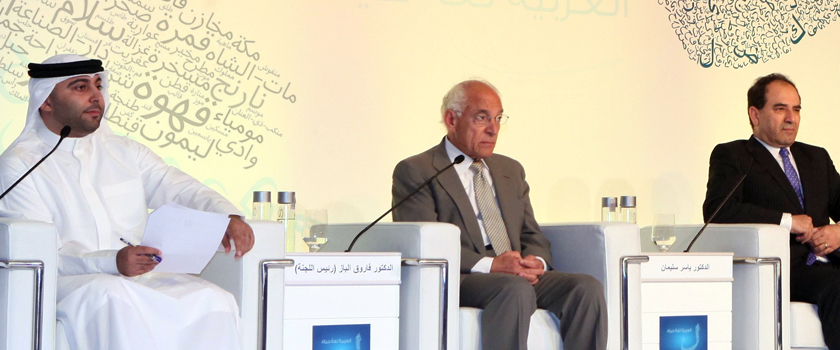2025 Offer Request a Quote Today and Grab a $50 Coupon for Free!
Suppose you are a student, looking for a fun language to learn. But you are having a hard time choosing from amongst the many ancient languages. To get the right mix of that ancient mysticism and modernity, you decide to choose the Turkish language.
Turkey is one of the oldest civilizations, dating back to 6000 BCE. Over the years, Turkey has evolved into a top tourist destinations and one of the rapidly advancing countries. Despite its rich history and tourist spots, however, many English-speaking people visiting this country find it difficult to communicate in Turkish.
Of course, that would not be such a big problem if they hired a reliable Turkish translation service to lend them professional translations.
But this Turkish language is not difficult to learn at all. In fact, Turkish language has some fascinating facts that may come as a surprise to many people.
It might come as a surprise, but Turkey boasts of a large population—almost 80 million, which is a greater number than the inhabitants of France and United Kingdom. Granted, Turkey may look like a small country but it has a huge number of speakers that surpasses even Italian and Greek speakers combined. The total number of Turkish speakers worldwide stand at 78 million, while Turkey has 75 million native speakers, followed by Germany, having 1.5 million Turkish speakers.
We all know that Turkey is located on the brink of eastern Europe and western Asia, straddling the two very different worlds. This is the reason it has retained so much of both areas’ cultures and languages. Likewise, being so close to the western Asian region, Turkish is influenced by Arabic and Farsi (the language of ancient Persia). On the other side, it has taken inspiration from the French, retaining many of the words commonly used in France.
When addressing someone in English, people usually call each other by their names. This is not the case in Turkish language. In Turkey, it is considered impolite to address someone directly by their name, which is why there are titles that are used to accompany the names. For example, amca is used to address ‘uncle’, whereas teyze is used for auntie.
The English language may be the official language of communication across the globe, but few people know that many English words are of Turkish origin. Some of the most commonly used words: yogurt and kiosk, are words of Turkish language which have made their way into the English language.
That’s right. Turkey might look small compared to its neighboring countries but it has a huge population of 80 million, which is greater than Italy and Greece’s combined population. Although this 80 million population resides in Turkey, they speak a variety of languages, including French, Spanish, English, Arabic and German. However, the number of native Turkish people stands at 75 million—which is a huge number. Mind you, this number is steadily increasing every year, along with the number of people who speak Turkish as a second language.
Although Spanish and Turkish do not have much in common, there is one similarity that they both share. As Spain has Royal Spanish Academy which regulates the Spanish language, Turkey has the Turkish Language Association, responsible for regulating the Turkish language. Established in 1932, this Association is tasked with the responsibility of keeping check on the Turkish vocabulary and regulating as well as monitoring the Turkish grammar. If you are a business seeking to expand in Turkey, chances are you will have to research about this Association—along with hiring a professional Turkish translation service for support, of course.
Considering the ancient nature of Turkish language, it is classified as a member of the Altaic language family—the same as that of Mongolic, Koreanic and Tungusic languages. However, upon further studies on the Turkish language, it was found out that it belongs to the Oghuz branch of languages, originating from Proto-Turkic. This branch has other prominent languages as well such as Azerbaijani, Qashgai, Uzbek, and Turkmen.
One thing that would be helpful for learners of the Turkish language is its vowel harmony. The Turkish language shares its subject-object-verb (SOV) structure with other languages such as German and Japanese. Moreover, learning Turkish may make it easier to learn other languages, owing to the fact that it has no gender differences (some languages such as French have those gender differences in language). Understanding the different terms in Turkish could make learning other languages easier.
Many of the people who have knowledge of Turkey may well be aware of Mustafa Kemal Ataturk (president and founder of the Turkish Republic). After the fall of the Ottoman Empire, he completely changed the Turkish alphabet, transforming it from an Arabic to westernized Latin script. This means Turkish language was still undergoing changes while other languages were busy spreading across the world.
Remember when we talked about the Turkish Language Association? After the fall of Ottoman Empire, the social reforms in Turkish gave birth to this Association, which was tasked with the responsibility of “purifying” the Turkish language. This meant that words of foreign origin were being removed from the Turkish vocabulary, to be replaced by more native words. This is the reason today’s Turkish language is the refined form of Turkish used in early times.
Few countries hold such immense historical and cultural importance as Turkey does. Perhaps this is the reason so many people want to learn this rich language. To be able to learn it fully, however, it is important to have a thorough knowledge about the Turkish language as well as the support of a reliable Turkish translation service which can translate your content promptly and precisely. Remember—Turkish is not a difficult language to learn. In fact, it is so interesting that learning it will be worth all the effort.

Turkey, the country straddling eastern Europe and western Asia is one of the most advanced and rapidly developing countries of
Read more
Mumbai (formerly known as Bombay) is the largest city of India and a cosmopolitan metropolis. Located on India’s west coast,
Read more
Mars Translation believes in bringing the best side of your business forward and that is why we have multiple international
Read more
Mars Translation provides one of a kind professional Danish translation services all over the world. All of Mars Translation’s translators
Read more
Mars Translation believes in bringing the best side of your business forward and that is why we have multiple international
Read more
Informed consent is the process by which doctors provide necessary medical information to their patients so that they can agree
Read more
Pune, also known as Puna, is the second largest city in the west-central Indian state of Maharashtra. It is the
Read more
Do you have a birth certificate in another language that needs to be translated into Russian language? If so, we
Read more
Recognizing an employee award is entirely convenient. It is both a formal and an informal acknowledgement of an employer’s effort,
Read more

